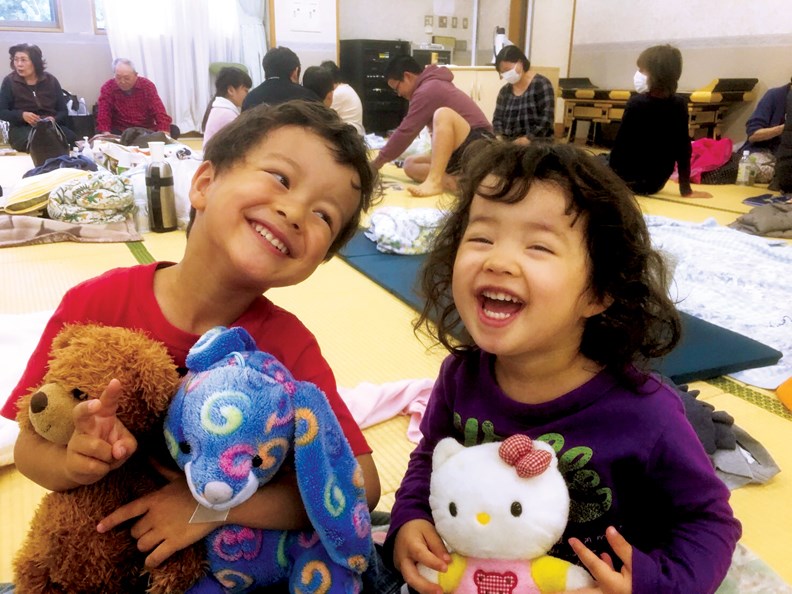Sunshine Coaster Kim Tournat is taking a close look at how prepared she is for a big earthquake after her brother and his family were caught in the recent quakes in Japan.
Two powerful earthquakes hit near Kumamoto, a city on the island of Kyushu, on April 14 and 15, registering at magnitude 6.4 and 7.3.
Tournat, who works as a constituency assistant for MLA Nicholas Simons, told Coast Reporter her brother Todd has been living in that part of Japan since the late 1990s. She said he, his wife Yoshiko and their two children, Masaki, 4, and Kazumi, 2, are safe and well, but still can’t return to their home.
“They’re in a [shelter at] a cultural centre,” Tournat said. “They can’t return home at the moment because it’s too unsafe. There’s an assessment taking place to see if they can eventually return home, but they live in a building that’s like an apartment building, so it’s unlikely that they can.”
Tournat also said that despite Japan’s well-known earthquake preparedness efforts, the family was still caught a bit unready. She said unsecured cupboard doors flew open and shelves that weren’t anchored toppled, creating a chaotic scene that made it difficult to access emergency supplies.
She said that’s the big lesson she’s taking away from her brother’s experience. “I’ve already moved our emergency preparedness kit out to the garage, where if things collapse it’ll at least be in the perimeter of our house,” Tournat said. “I’ve also been thinking in terms of refurbishing it and keeping it up to date.”
Tournat has heard from her brother that the biggest need in the quake zone remains fresh water. The city’s supply still isn’t safe to drink, and it’s been difficult to get water into the area.
The Red Cross is one of the lead agencies responding to the quakes in Japan, and the magnitude 7.8 quake that struck Ecuador last weekend. You can donate at www.redcross.ca, or by calling 1-800-418-1111.



